- Home
- Seanan McGuire
Laughter at the Academy Page 25
Laughter at the Academy Read online
Page 25
“Will there be anything else today?”
“No, that’s about it.” I signed my credit card slip and dropped the receipt into the bag. “I’ll see you next week.”
“About that…”
I froze. “What about it?”
“Well, you know this weekend is our big get-together, right?” Willow smiled ingratiatingly. “A bunch of our regulars are bringing in their kids to share with each other, and I know you must have some absolutely gorgeous children at home, with all the things you buy.”
I managed not to shudder as I pasted a smile across my face. The tendency of some doll people to refer to their creations as “children” has always horrified me, especially given my situation. Children live. Children breathe. Their dolls…didn’t. “I can’t,” I said, fighting to sound sincere. “I’m supposed to visit my father at the nursing home. Maybe next time, okay?”
“That would be nice.” Willow barely hid her disappointment. I grabbed my bag and fled without saying another word, and this time the bell above the door sounded like victory. I had made my escape. Now all I had to do was keep on running.
The cat met me at the apartment door, meowing and twining aggressively around my ankles, like tripping me would magically cause her food dish to refill. Maybe she thought it would; it’s hard to say, with cats.
“Wait your turn, Trinket.” I shut and locked the door before walking across the room—dodging the cat all the way—and putting my bag down on the cluttered mahogany table that served as my workspace. Trinket stopped when I approached the table, sitting down and eyeing it mistrustfully. The tabletop had been the one forbidden place in the apartment since she was a kitten. She badly wanted to be up there—all cats desire forbidden things—but she was too smart to risk it.
The half-painted faces of my current projects stared at me from their stands. Some—Christina, Talia, Jonathan—had bodies, and Christina was partially blushed, giving her a beautifully human skin tone. Others, like Charity the bat-girl, were nothing more than disembodied heads.
“I’m sorry guys,” I said, to the table in general. “You’re going to need to wait a little longer. I have a rush job.” The dolls stared at me with blank eyes, and didn’t say anything. That was a relief.
Trinket followed me to the kitchen, where I fed her a can of wet cat food, stroked her twice, and discarded my shoes. I left my jacket on the bookshelf by the door, hanging abandoned off a convenient wooden outcropping. I was halfway into my trance when I sat down at the table, reaching for the bag, ready at last. The tools I needed were in place, waiting for me. All I needed to do was begin.
So I began.
The doll maker’s art is as ancient and revered as any other craft, for all that it’s been relegated to the status of “toymaker” in this modern age. A maker of dolls is so much more than a simple toymaker. We craft dreams. We craft vessels. We open doorways into the Kingdom of the Cold, where frozen faces look eternally on the world, and do not yearn, and do not cry.
I learned my craft at my father’s knee, just as he’d learned from his father, and his father from his mother. When the time comes, when my father dies, I’ll be expected to teach my own child. Someone has to be the gatekeeper; someone has to be the maker of the keys. That was the agreement Collodi made with Pandora, who began our family line when she needed help recapturing the excess of emotion she had loosed into the world. We will do what must be done, and we will each train our replacement, and the doll maker’s art will endure, keeping the doors to the Kingdom open.
I fixed the face I’d purchased from Willow to the stand and began mixing my colors. I wanted to preserve its wintry whiteness, but I needed it to be a living pallor, the sort of thing that looked eerie but not impossible. So I brushed the thinnest of pinks onto her cheeks and around the edges of her hairline, using an equally thin wash of blue and gray around the holes that would become her eyes, until they seemed to be sunken sockets, more skeletal in color than they’d ever been in their pristine state. I painted her lips pale at the edges and darkening as I moved inward, leaving the center of her mouth gleaming red as a fresh-picked strawberry. I added a spray of freckles to the bridge of her nose, using the same shade of pink as the edges of her lips.
She was lovely. She’d be lovelier when she was done, and so I reached for her body, and kept going. There was so much work to do.
Somewhere around midnight, between the third coat of paint and the first careful restyling of the wig that would be her hair, I blacked out, falling into the dreaming doze that sometimes took me when I worked too long on the borders between this world and the Kingdom of the Cold. My hands kept moving, and time kept passing, and when I woke to the sound of my cellphone’s alarm ringing from my jacket pocket, the sun had risen, and a completed doll sat in front of me, her hands folded demurely in her lap, like she was awaiting my approval.
Her face was just as I’d envisioned it in the store: pale and wan, but believably so, with eyes that almost matched her lips gazing out from beneath her downcast lashes. I must have glued them in just before I woke up; the smell of fixative still hung in the air. Her hair was a cascade of snow, and her dress was the palest of possible pinks. She was barefoot, and her only ornamentation was a silver strawberry charm on a chain around her neck. She was finished, and she was perfect, and she was just in time.
“Your name is Strawberry,” I said, reaching out to take her hands between my thumbs and forefingers. “I have called you into being to be a vessel for my sadness, for there is no place for sorrow in the Kingdom of the Cold. Do you accept this burden, little girl, so newly made? Will you serve this role for me?”
Everything froze. Even the clocks stopped ticking. This was where I would learn whether I’d chosen my materials correctly; this was where I would learn if they would serve me true. Then, with a feeling of rightness that was akin to finding a key that fits a lock that has been closed for a hundred years, something clicked inside my soul, and the sorrows of the past few weeks flowed out of me, finding their new home in the resin body of my latest creation.
It’s no small thing, pouring human-sized sorrow into a toy-sized vessel. Sorrow is surprisingly malleable, capable of adjusting its shape to fit the box that holds it, but it fights moving from one place to another, and it has thorns. Sorrow is a bramble of the heart and a weed of the mind, and this sorrow was deeply rooted. It held a hundred small slights, workdays where things refused to go according to plan, cups of coffee that were too cold and buses that came late. It also held bigger, wider things, like my meeting with Father’s case supervisor, who had shown me terrible charts and uttered terrible words like “state budget cuts” and “better served by another placement.” Father couldn’t handle being moved again, not when he was just starting to remember his surroundings from day to day, and I couldn’t handle the stress or expense of moving him. Not now, not when I was already out of vacation time and patience. Lose my job, lose the nursing homes. Lose the nursing homes, and face the choice so many of my ancestors had faced: whether to share my space with a broken vessel who no longer knew how to reach the Kingdom, or whether to break the last dolls binding him to this world, freeing their share of his sorrow and opening his doorway to the Kingdom one final, fatal time.
I could send him home. No one would call it murder, but I would always know what I had done.
It was a hard, brutal concept, one that had no place in the modern world, but I had to consider it, because Father had always told me that one day, it would be my choice to make. Life or death, parent or duty—me or him. And I wasn’t ready to decide. So I poured it all into the doll I had crafted with my own two hands, and Strawberry, darling Strawberry, drank it to the very last drop. I couldn’t have asked for anything more than what she offered, and when I felt the click again, the key turning and the doorway closing, I had become an empty vessel. My sorrows were gone, bled out into the doll with the strawberry eyes.
“Thank you,” I murmured, and stood. I carried her across
the room to a shelf of girl dolls who looked nothing like her, yet all seemed somehow to be family to one another: there was some intangible similarity in their expressions and posture. They all contained a measure of sadness, decanted from me through the Kingdom and into them over the course of these past three years. I set Strawberry among her sisters, adjusting her skirt and the position of her hands until she was just so and exactly right, like she had always been there.
Then, light of heart and step, I turned and walked toward my bedroom. It was time to get ready for work.
The day passed in a stream of tiny annoyances and demands, as days at the company where I worked as a junior accountant so often did.
“Marian, do you have that report ready?”
“Marian, is the copy machine fixed yet?”
“Marian, we’re out of coffee.”
I weathered them all with a smile on my face. I felt like I could face any challenge. I always felt that way right after I opened a channel to the Kingdom. People like my father and I used to be revered as surgeons, the doll makers who came to town and helped people remove the parts of themselves that they couldn’t handle anymore. The bad memories, the pain, the sorrow. Now he was a senile old man fading away by inches and I was a woman with a strange, expensive hobby, but that didn’t change what we’d been designed to do. It didn’t close the doorway.
“Hi, Marian.”
The sound of Clark’s voice wrenched me out of the payroll system and sent me into a state of chilly panic, my entire body going tense and cold with the sudden stress of living. No, no, no, I thought, and raised my eyes. Yes, yes, yes, said reality, because there was Clark, useless ex-boyfriend and even more useless co-worker, standing with his arms draped across the edge of my half-cubicle like I’d invited him to be there, like he was some sort of strange workplace beautification project gone horribly wrong.
“Hello, Clark,” I said, as coolly as I could. “Is there something I can help you with?”
“You can tell me why you’re not answering my calls,” he said. “Did I do something wrong? I know you said you didn’t want to be serious. I didn’t think that meant cutting me out entirely.”
“Please don’t make me call HR,” I said, glancing around to be sure no one was listening. “I said I didn’t want to see you socially anymore. I meant it.”
“Is this because I said your doll collection was childish and weird? Because it is, but I can adjust, you know? Lots of people have weirder hobbies. My little sister used to collect Beanie Babies. She was like twelve at the time, but it’s the same concept, right?”
I ground my teeth involuntarily, feeling a stab of pain from the crown on my left rear molar. I had sliced half of that tooth off with a hot knife when I opened my first doorway to the Kingdom. Early sacrifices had to hurt more. “No, it’s not,” I said stiffly. “I told you I didn’t want to talk about this. I definitely don’t want to talk about it at work.”
“You won’t take my calls, you won’t meet me for coffee, so where else are we supposed to talk about it? You haven’t left me anywhere else.”
He looked so confident in his answer, like he had found the perfect way to get me to go out with him again. I wanted to slap him across his smug, handsome face. I knew better. I flexed my hands, forcing them to stay on my desk, and asked, “What do you want me to say, Clark? That I’ll meet you for coffee so we can have a talk about why we’re never going to date again, and why I’ll report you to HR for harassment if you don’t stop bothering me?”
“Sounds great.” He flashed the toothy smile that had initially convinced me it would be a good idea to go out with him. I should have known better, but he’d been so handsome, and I’d been so lonely. I’d just wanted someone to spend a little time with. Was that so wrong?
No. Everything human wants to be loved, and wants the chance to love someone else. The only thing I did wrong was choosing Clark.
I swallowed a sigh and asked, “Does tonight work for you?” Better to do it while I was still an empty vessel. If I waited for the end of the week, I’d have to pull another all-nighter and add another girl to my shelf before I could endure his company. That would be bad. Not only would the cost of materials eat a hole in my bank account that I couldn’t afford right now, but the strain of opening a second doorway so soon after the first would be…inadvisable. I could do it, and had done it in the past. That didn’t make it a good idea.
“Hey now, first you play hard to get and now you’re trying to rush me? I thought you said you didn’t like games.” His smile didn’t waver. “Tonight’s just fine. Pick you up at seven?”
“I’d rather meet you there,” I said.
“Ah, but you don’t know where we’re going.” Clark winked, pushing himself away from the wall of my cubicle. “Wear something nice.” He turned and walked down the hall before I could frame a reply, the set of his shoulders and the cant of his chin implying that he really thought he’d won.
I groaned, dropping my head into my hands. He thought he’d won because he had. I was going out with him again. “What the hell is wrong with me?” I muttered.
My computer didn’t answer.
The bell rang at 7:20 PM—Clark, making me wait the way he always had, like twenty minutes would leave me panting for his arms. I put down the wig cap I’d been re-rooting and walked to the door, wiping stray rayon fibers off my hands before opening it and glaring at the man outside.
Clark took in my paint-stained jeans and plain gray top, his jovial expression fading into a look that almost matched mine. He was wearing a suit, nicer than anything he ever put on for work, and enough pomade in his hair to make him smell like a Yankee Candle franchise. “I thought I told you to put on something nice,” he said.
“I thought I told you I was willing to meet you for coffee,” I shot back. “Last time I checked, the dress code at Starbucks was ‘no shirt, no shoes, no service.’ I have a shirt and shoes. I think I’ll be fine.”
Clark continued to glower for a moment before shouldering his way past me into the apartment.
“Hey!” I yelped, making a futile grab for his arm. It was already too late: he was in my living room, turning slowly as he took in all the dolls that had joined my collection since the last time he’d been here, some three months previous. I tried not to open a doorway to the Kingdom more than once a week, but sometimes it was hard to resist the temptation, especially when I had more than one trouble to decant. Dolls like Strawberry held sorrow, while others held different emotions—anger, loneliness, even hope, and love, and joy. Positive emotions took longer to grow back and had to be decanted less frequently, but they were represented all the same.
Clark’s examination took about two minutes before he focused back on me, disdain replaced by pity. “This is why you broke up with me?” he asked. “I mean, you said it was because of the dolls, but I thought that was just a crappy excuse, you know? The weird-chick equivalent of ‘I have to wash my hair on Saturday night.’ But you meant it. You like plastic people better than you like real ones. There’s something wrong with you.”
“My dolls aren’t plastic,” I said automatically, before I realized I was falling back into the same destructively defensive patterns that had defined our brief relationship. I glared at him, shutting the door before Trinket could get any funny ideas about making a run for the outside world. “You want to have this talk? Fine. Yes, I chose my dolls over you. Unlike you, they never tell me I’d be pretty if I learned how to do something with my hair. Unlike you, they don’t criticize me in public and then say they were just kidding. And unlike you, they shut up when I tell them to.”
“You really are a crazy bitch.” He strode across the living room, grabbing the first thing that caught his eye—pretty little Strawberry in her mourning gown. His hand all but engulfed her body. “You need to learn how to focus on real things, Marian, or you’re going to be alone forever.”
“You put her down!” I didn’t think. I just acted, launching myself at him
like he wasn’t a foot taller and fifty pounds heavier than I was. I was reaching for Strawberry, trying to snatch her out of his hand, when his fist caught me in the jaw and sent me sprawling.
I’d never been punched in the face before. Everything went black and fuzzy. I didn’t actually pass out, but the next few minutes seemed like a slideshow or a Power Point presentation, and not like something that was really happening. Static picture followed static picture as I watched Clark stalk around my apartment, grabbing dolls off the shelves. When he couldn’t hold any more he walked over to me, looking down, and said, “This is what you get.”
He kicked me in the stomach, and then he was gone, taking my dolls with him, and I was alone. At some point, I came back to myself enough to start crying.
It didn’t help.
Trinket stuck her nose through the curtain of my hair and mewled, eyes wide and worried. I sniffled, wiping my eyes with the back of my hand, and sat up to pat her gently on the head. “He didn’t hurt me that bad, Trinket. I’m okay. I’m okay.”
I was lying to myself as much as I was lying to the cat: I might be many things, but I was distinctly not okay. Clark had stolen at least a dozen of my dolls, maybe more, and he hadn’t been careful about the shelves he took them from. I picked myself up from the floor inch by excruciating inch, finally turning to take stock of the damage.
It was greater than I’d feared. Fifteen dolls were missing—at least one from every shelf, as well as one of the unfinished dolls from my table. Relief washed over me when I saw that. At least not everything he’d taken was a weapon. Shame followed on relief’s heels. He’d stolen fourteen full vessels, fourteen dangerous doorways into the Kingdom of the Cold, and I was relieved that it wasn’t one more? What was the difference between fourteen and fifteen when you were talking about knives to the heart? Fourteen would be more than enough to kill. The only question was who.

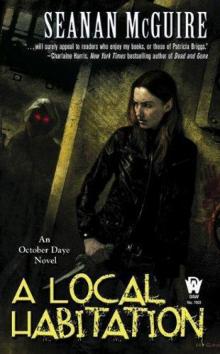 A Local Habitation
A Local Habitation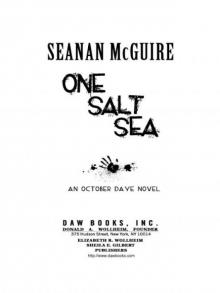 One Salt Sea
One Salt Sea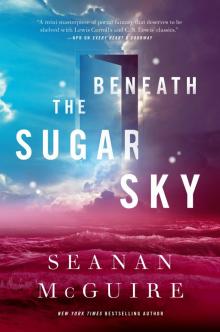 Beneath the Sugar Sky
Beneath the Sugar Sky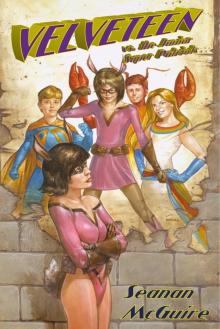 Velveteen vs. The Junior Super Patriots
Velveteen vs. The Junior Super Patriots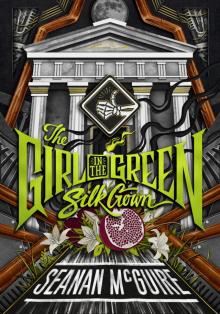 The Girl in the Green Silk Gown
The Girl in the Green Silk Gown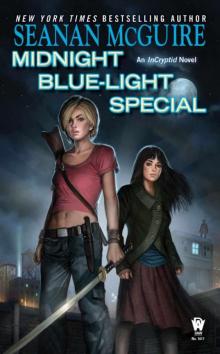 Midnight Blue-Light Special
Midnight Blue-Light Special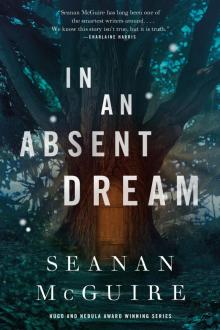 In an Absent Dream
In an Absent Dream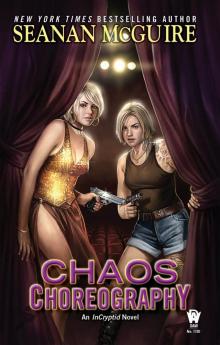 Chaos Choreography
Chaos Choreography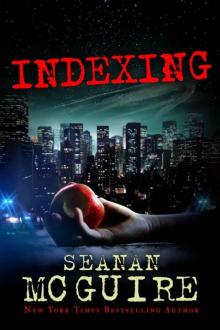 Indexing
Indexing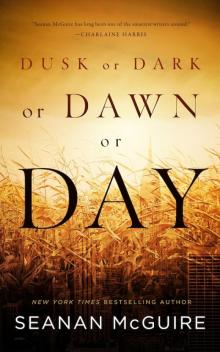 Dusk or Dark or Dawn or Day
Dusk or Dark or Dawn or Day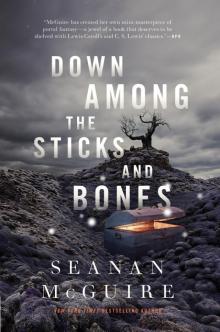 Down Among the Sticks and Bones
Down Among the Sticks and Bones The Razor's Edge
The Razor's Edge Midway Relics and Dying Breeds
Midway Relics and Dying Breeds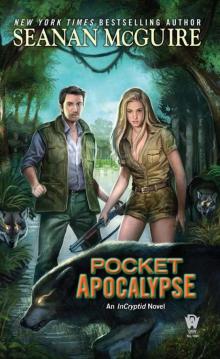 Pocket Apocalypse
Pocket Apocalypse The Brightest Fell
The Brightest Fell Discount Armageddon
Discount Armageddon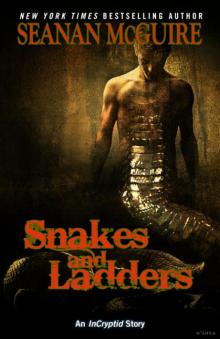 Snakes and Ladders
Snakes and Ladders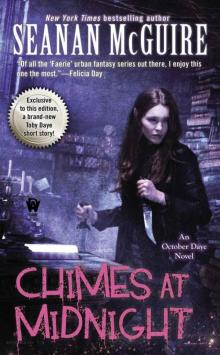 Chimes at Midnight
Chimes at Midnight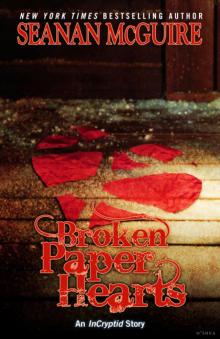 Broken Paper Hearts
Broken Paper Hearts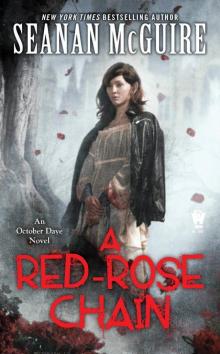 A Red-Rose Chain
A Red-Rose Chain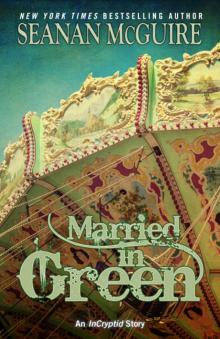 Married in Green
Married in Green Sparrow Hill Road 2010 By Seanan
Sparrow Hill Road 2010 By Seanan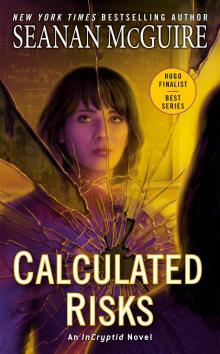 Calculated Risks
Calculated Risks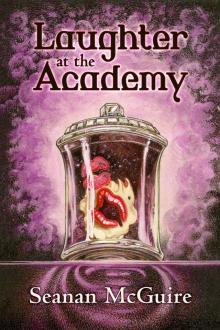 Laughter at the Academy
Laughter at the Academy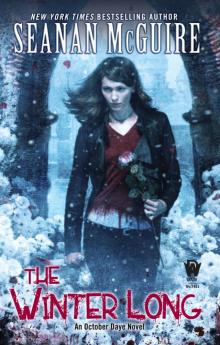 The Winter Long
The Winter Long We Both Go Down Together
We Both Go Down Together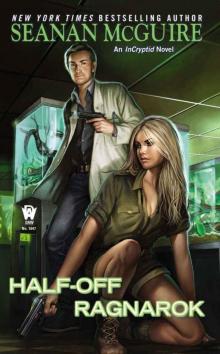 Half-Off Ragnarok
Half-Off Ragnarok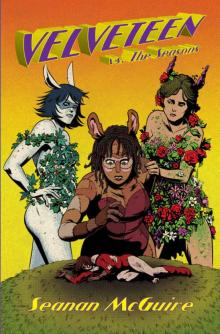 Velveteen vs. The Seasons
Velveteen vs. The Seasons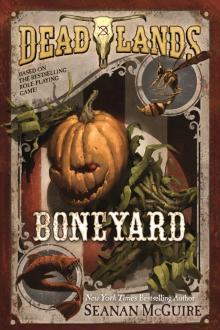 Boneyard
Boneyard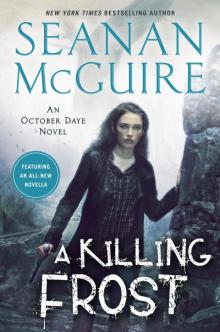 A Killing Frost
A Killing Frost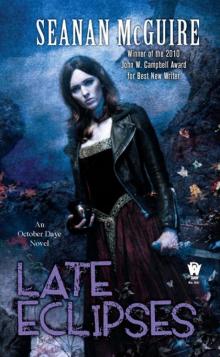 Late Eclipses
Late Eclipses Submerged
Submerged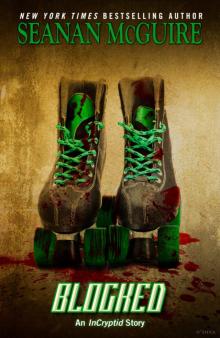 Blocked
Blocked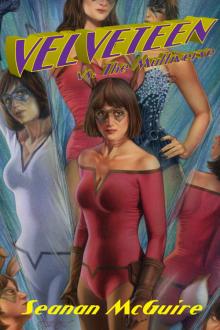 Velveteen vs. The Multiverse
Velveteen vs. The Multiverse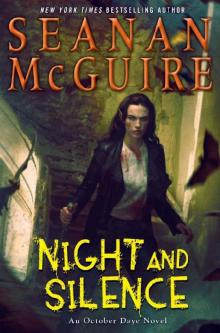 Night and Silence
Night and Silence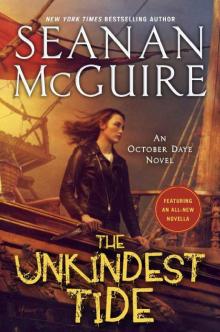 The Unkindest Tide (October Daye)
The Unkindest Tide (October Daye)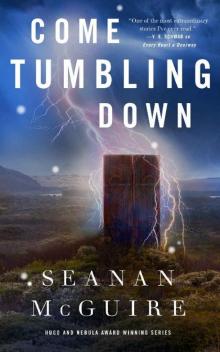 Come Tumbling Down (Wayward Children)
Come Tumbling Down (Wayward Children)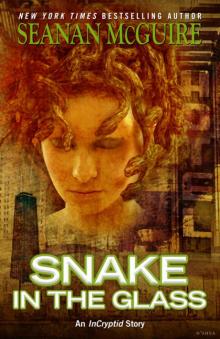 Snake in the Glass
Snake in the Glass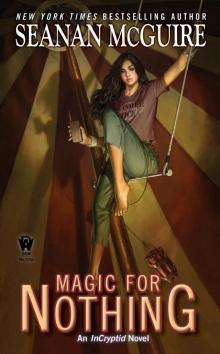 Magic for Nothing
Magic for Nothing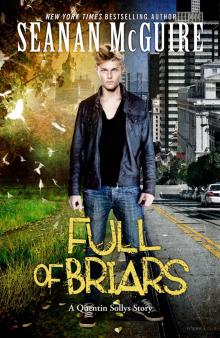 Full of Briars
Full of Briars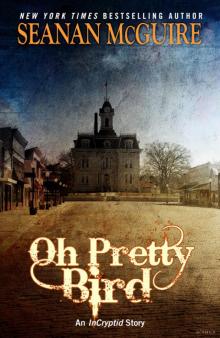 Oh Pretty Bird
Oh Pretty Bird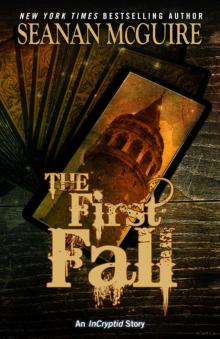 The First Fall
The First Fall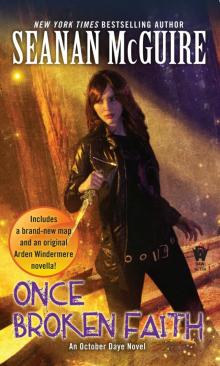 Once Broken Faith
Once Broken Faith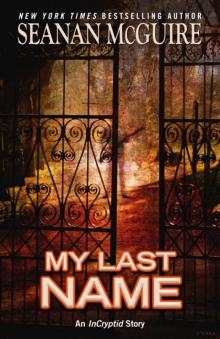 My Last Name
My Last Name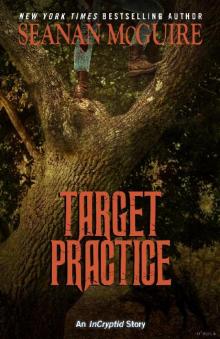 Target Practice
Target Practice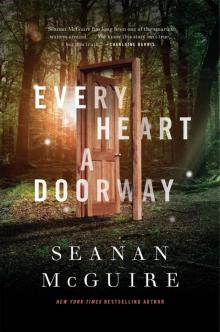 Wayward Children 01 - Every Heart a Doorway
Wayward Children 01 - Every Heart a Doorway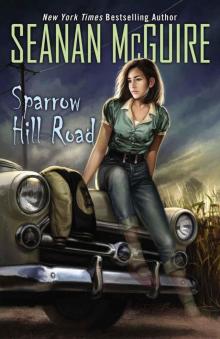 Sparrow Hill Road
Sparrow Hill Road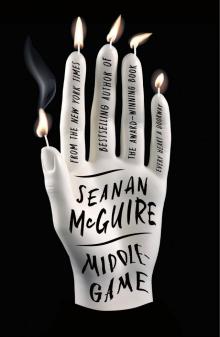 Middlegame
Middlegame Juice Like Wounds
Juice Like Wounds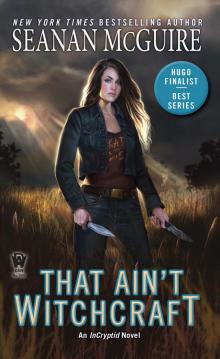 That Ain't Witchcraft
That Ain't Witchcraft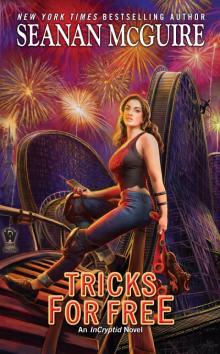 Tricks for Free
Tricks for Free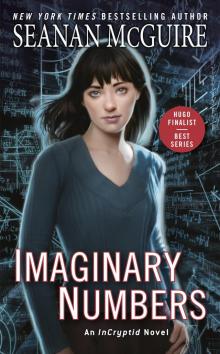 Imaginary Numbers
Imaginary Numbers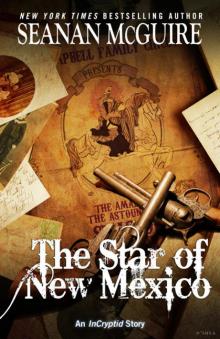 The Star of New Mexico
The Star of New Mexico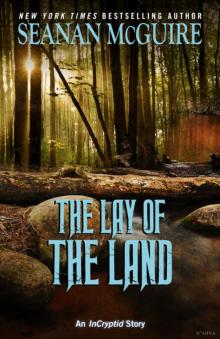 Lay of the Land
Lay of the Land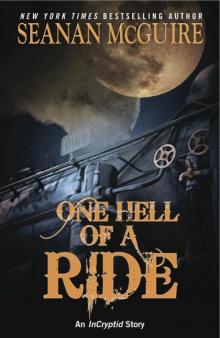 One Hell of a Ride
One Hell of a Ride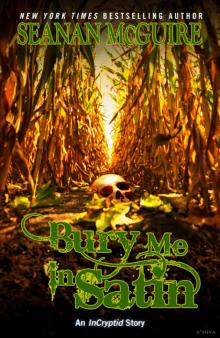 Bury Me in Satin
Bury Me in Satin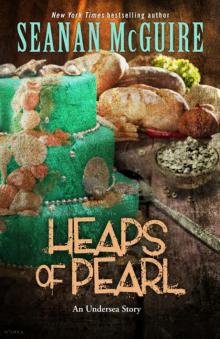 Heaps of Pearl
Heaps of Pearl Sweet Poison Wine
Sweet Poison Wine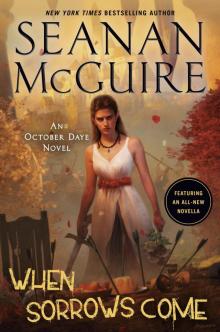 When Sorrows Come
When Sorrows Come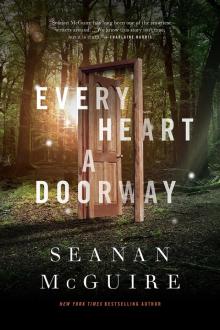 Every Heart a Doorway
Every Heart a Doorway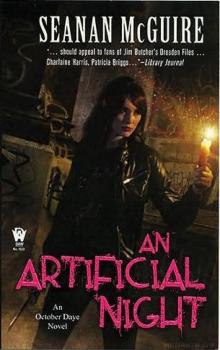 An Artificial Night - BK 3
An Artificial Night - BK 3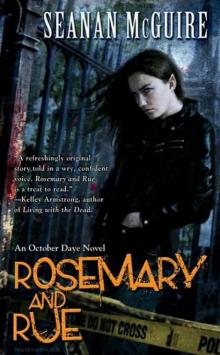 Rosemary and Rue
Rosemary and Rue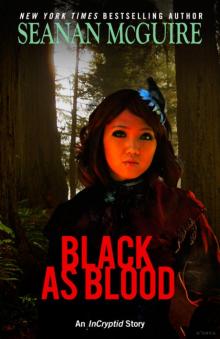 Black as Blood
Black as Blood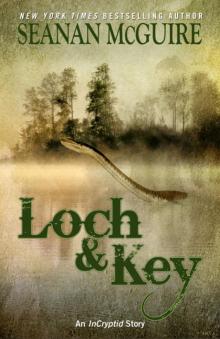 Loch and Key
Loch and Key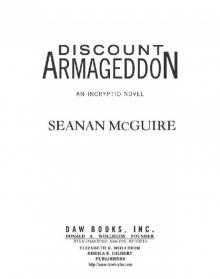 Discount Armageddon: An Incryptid Novel
Discount Armageddon: An Incryptid Novel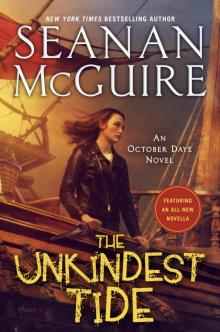 The Unkindest Tide
The Unkindest Tide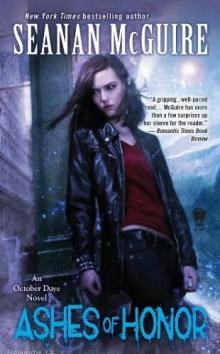 Ashes of Honor od-6
Ashes of Honor od-6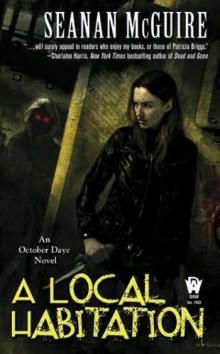 A Local Habitation od-2
A Local Habitation od-2 Waking Up in Vegas
Waking Up in Vegas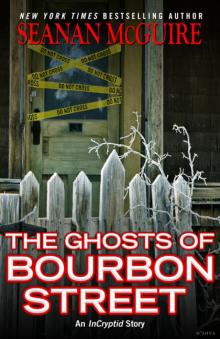 The Ghosts of Bourbon Street
The Ghosts of Bourbon Street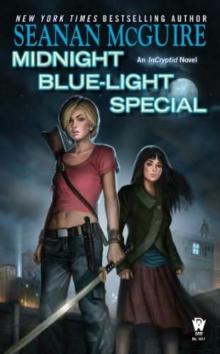 Midnight Blue-Light Special i-2
Midnight Blue-Light Special i-2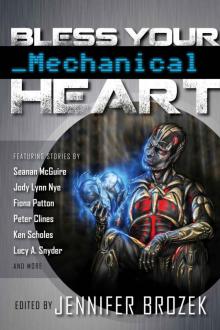 Bless Your Mechanical Heart
Bless Your Mechanical Heart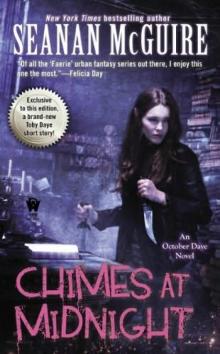 Chimes at Midnight od-7
Chimes at Midnight od-7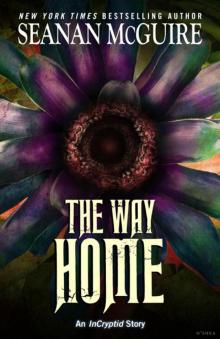 The Way Home
The Way Home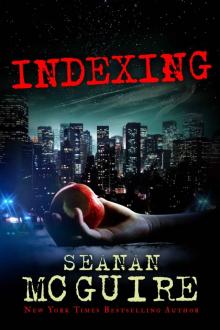 Indexing (Kindle Serial)
Indexing (Kindle Serial)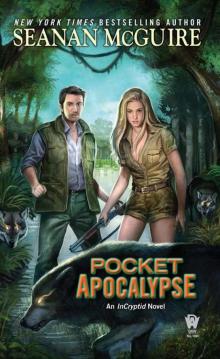 Pocket Apocalypse: InCryptid, Book Four
Pocket Apocalypse: InCryptid, Book Four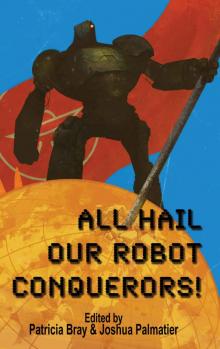 All Hail Our Robot Conquerors!
All Hail Our Robot Conquerors!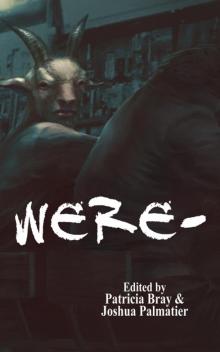 Were-
Were-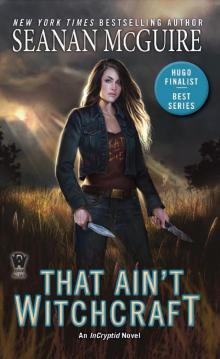 That Ain't Witchcraft (InCryptid #8)
That Ain't Witchcraft (InCryptid #8)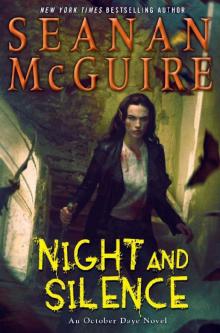 Night and Silence (October Daye)
Night and Silence (October Daye)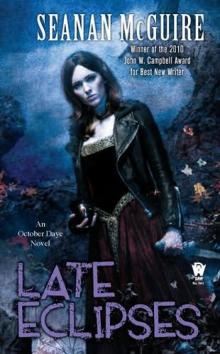 Late Eclipses od-4
Late Eclipses od-4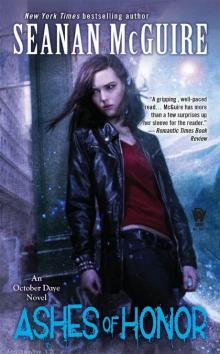 Ashes of Honor: An October Daye Novel
Ashes of Honor: An October Daye Novel Midway Relics and Dying Breeds: A Tor.Com Original
Midway Relics and Dying Breeds: A Tor.Com Original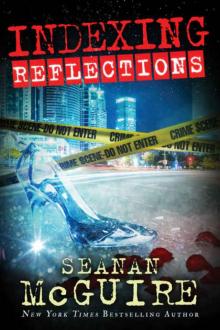 Indexing: Reflections (Kindle Serials) (Indexing Series Book 2)
Indexing: Reflections (Kindle Serials) (Indexing Series Book 2)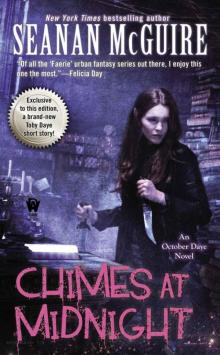 Chimes at Midnight: An October Daye Novel
Chimes at Midnight: An October Daye Novel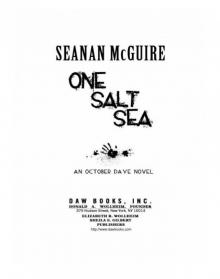 One Salt Sea: An October Daye Novel
One Salt Sea: An October Daye Novel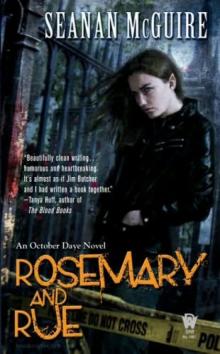 Rosemary and Rue od-1
Rosemary and Rue od-1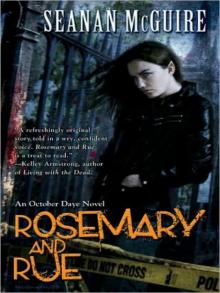 Rosemary and Rue: An October Daye Novel
Rosemary and Rue: An October Daye Novel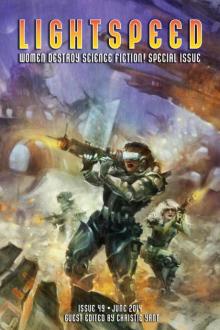 Lightspeed Magazine Issue 49
Lightspeed Magazine Issue 49 Alien Artifacts
Alien Artifacts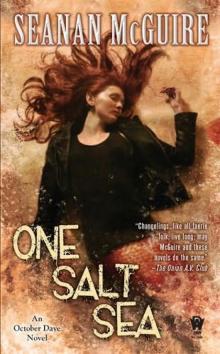 One Salt Sea od-5
One Salt Sea od-5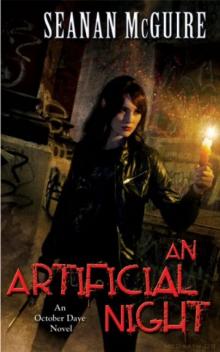 An Artificial Night od-3
An Artificial Night od-3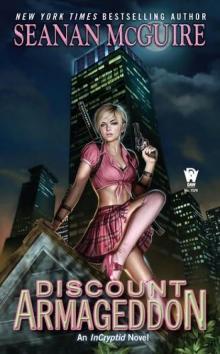 Discount Armageddon i-1
Discount Armageddon i-1